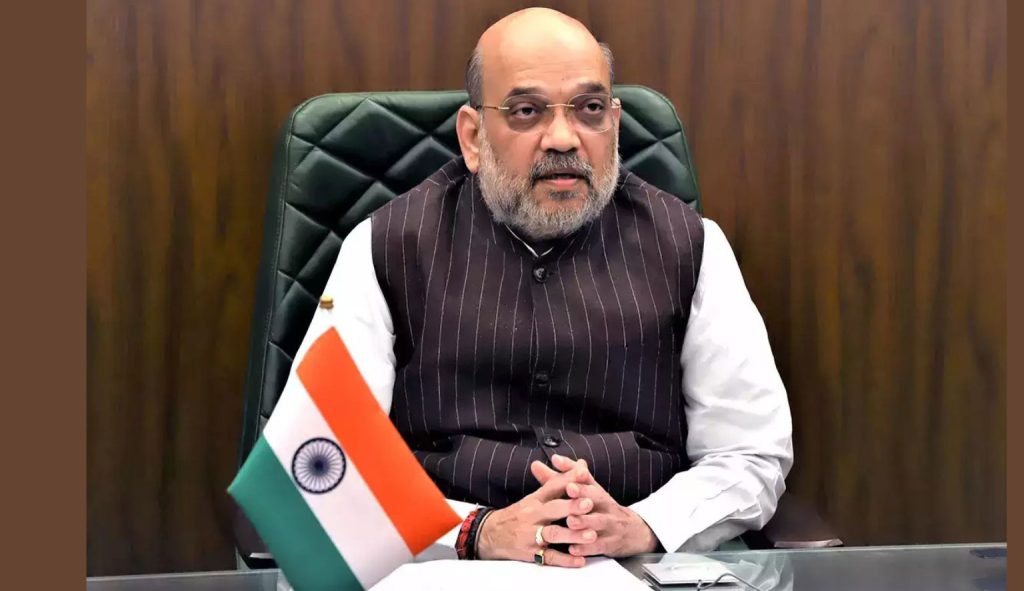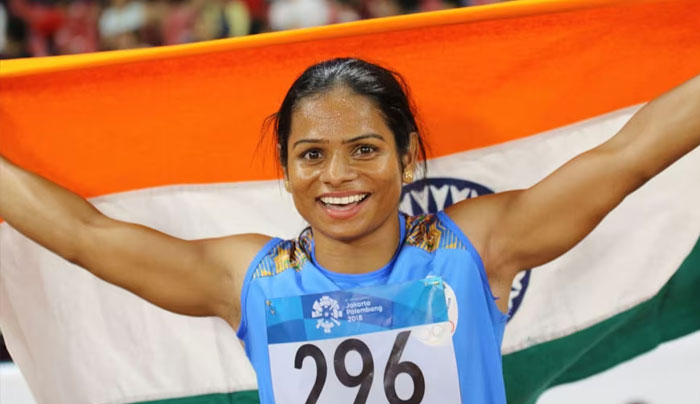Amit Shah Quick Info
| Age | Caste | Hometown | Profession |
| 59 Years | Gujarati Baniya | Mehsana, Gujarat | Politician |

Pic Credit – northeastlivetv.com
Biography – Wiki
| Full Name | Amitbhai Anilchandra Shah | ||||||||||||||||||||||||||||||||||||||||||||||||||||||||||||||||||||||||||||||||||||||||||||||||||||||||||||
| Nickname | Amit | ||||||||||||||||||||||||||||||||||||||||||||||||||||||||||||||||||||||||||||||||||||||||||||||||||||||||||||
| Profession | Politician | ||||||||||||||||||||||||||||||||||||||||||||||||||||||||||||||||||||||||||||||||||||||||||||||||||||||||||||
| Physical Stats – Height – Weight & More | |||||||||||||||||||||||||||||||||||||||||||||||||||||||||||||||||||||||||||||||||||||||||||||||||||||||||||||
| Height (approx.) | In Centimeters- 168 Cm In Meters- 1.68 M In Feet Inches- 5’ 6” |
||||||||||||||||||||||||||||||||||||||||||||||||||||||||||||||||||||||||||||||||||||||||||||||||||||||||||||
| Weight (approx.) | In Kilograms- 90 Kg In Pounds- 198 Lbs |
||||||||||||||||||||||||||||||||||||||||||||||||||||||||||||||||||||||||||||||||||||||||||||||||||||||||||||
| Eye Colour | Black | ||||||||||||||||||||||||||||||||||||||||||||||||||||||||||||||||||||||||||||||||||||||||||||||||||||||||||||
| Hair Colour | White | ||||||||||||||||||||||||||||||||||||||||||||||||||||||||||||||||||||||||||||||||||||||||||||||||||||||||||||
| Official Portrait of Amit Shah | |||||||||||||||||||||||||||||||||||||||||||||||||||||||||||||||||||||||||||||||||||||||||||||||||||||||||||||
|
|||||||||||||||||||||||||||||||||||||||||||||||||||||||||||||||||||||||||||||||||||||||||||||||||||||||||||||
| Exploring the Personal Life of Amit Shah | |||||||||||||||||||||||||||||||||||||||||||||||||||||||||||||||||||||||||||||||||||||||||||||||||||||||||||||
| Date of Birth | Amit Shah was born on 22 October 1964, a Thursday. | ||||||||||||||||||||||||||||||||||||||||||||||||||||||||||||||||||||||||||||||||||||||||||||||||||||||||||||
| Age (as of 2023) | As of 2023, Amit Shah is 59 years old. | ||||||||||||||||||||||||||||||||||||||||||||||||||||||||||||||||||||||||||||||||||||||||||||||||||||||||||||
| Birthplace | He was born in Mumbai, Maharashtra, India. | ||||||||||||||||||||||||||||||||||||||||||||||||||||||||||||||||||||||||||||||||||||||||||||||||||||||||||||
| Zodiac sign | Amit Shah's zodiac sign is Libra. | ||||||||||||||||||||||||||||||||||||||||||||||||||||||||||||||||||||||||||||||||||||||||||||||||||||||||||||
| Nationality | He holds Indian nationality. | ||||||||||||||||||||||||||||||||||||||||||||||||||||||||||||||||||||||||||||||||||||||||||||||||||||||||||||
| Hometown | His hometown is Mehsana, Gujarat, India. | ||||||||||||||||||||||||||||||||||||||||||||||||||||||||||||||||||||||||||||||||||||||||||||||||||||||||||||
| School | Amit Shah attended a local school in Mehsana, Gujarat. | ||||||||||||||||||||||||||||||||||||||||||||||||||||||||||||||||||||||||||||||||||||||||||||||||||||||||||||
| College | He pursued his education at C.U Shah Science College, Ahmedabad. | ||||||||||||||||||||||||||||||||||||||||||||||||||||||||||||||||||||||||||||||||||||||||||||||||||||||||||||
| Educational Qualifications | Amit Shah holds a B.Sc. in Biochemistry. | ||||||||||||||||||||||||||||||||||||||||||||||||||||||||||||||||||||||||||||||||||||||||||||||||||||||||||||
| Religion | He practices Hinduism. Note: Earlier, there were reports suggesting Amit Shah was not Hindu but Jain, which he clarified at a press conference in April 2018 by stating, "I Am A Hindu Vaishnav, Not Jain." |
||||||||||||||||||||||||||||||||||||||||||||||||||||||||||||||||||||||||||||||||||||||||||||||||||||||||||||
| Caste | Amit Shah belongs to the Gujarati Bania caste. | ||||||||||||||||||||||||||||||||||||||||||||||||||||||||||||||||||||||||||||||||||||||||||||||||||||||||||||
| Hobbies | His hobbies include reading, watching cricket, and engaging in social service. | ||||||||||||||||||||||||||||||||||||||||||||||||||||||||||||||||||||||||||||||||||||||||||||||||||||||||||||
| Address | His address is 16, Sudeep Society, Royal Crisant, Sarkhej-Gandhinagar Highway, Ahmedabad. | ||||||||||||||||||||||||||||||||||||||||||||||||||||||||||||||||||||||||||||||||||||||||||||||||||||||||||||
| Exploring the Family Tree: An Insight into Family Details | |||||||||||||||||||||||||||||||||||||||||||||||||||||||||||||||||||||||||||||||||||||||||||||||||||||||||||||
| Family | Father: Anilchandra Shah, father of Amit is a Businessperson Mother: Kusumben Shah Sisters: Aarthi Shah, Rajeshwariben (elder) Amit Shah has six sisters. His sister Rajeshwariben died during a treatment at an hospital in Mumbai on 15 January 2023. Brother: None |
||||||||||||||||||||||||||||||||||||||||||||||||||||||||||||||||||||||||||||||||||||||||||||||||||||||||||||
| Amit’s Early Political Career | |||||||||||||||||||||||||||||||||||||||||||||||||||||||||||||||||||||||||||||||||||||||||||||||||||||||||||||
| Entry into politics | |||||||||||||||||||||||||||||||||||||||||||||||||||||||||||||||||||||||||||||||||||||||||||||||||||||||||||||
| 1983 | Amit Shah entered politics as the leader of the student wing of the RSS, the Akhil Bharatiya Vidyarthi Parishad. | ||||||||||||||||||||||||||||||||||||||||||||||||||||||||||||||||||||||||||||||||||||||||||||||||||||||||||||
| 1987 | Shah joined the Bharatiya Janata Party (BJP) one year before Narendra Modi's entry into the party. He became an activist of the BJP's youth wing, Bharatiya Janata Yuva Morcha (BJYM), and held various positions within the BJYM hierarchy, including ward secretary, taluka secretary, state secretary, vice-president, and general secretary. | ||||||||||||||||||||||||||||||||||||||||||||||||||||||||||||||||||||||||||||||||||||||||||||||||||||||||||||
| 1991 | Displaying notable management skills, Shah served as the election campaign manager for Lal Krishna Advani in Gandhinagar during the Lok Sabha elections. | ||||||||||||||||||||||||||||||||||||||||||||||||||||||||||||||||||||||||||||||||||||||||||||||||||||||||||||
| 1995 | The BJP formed its first government in Gujarat with Keshubhai Patel as Chief Minister. Shah, along with Narendra Modi, worked to eliminate Congress' influence in rural Gujarat. They devised a strategy to recruit the second-most influential leader in every village to join the BJP, creating a network of 8,000 influential rural leaders. | ||||||||||||||||||||||||||||||||||||||||||||||||||||||||||||||||||||||||||||||||||||||||||||||||||||||||||||
| 1999 | Amit Shah was elected as the president of the Ahmedabad District Cooperative Bank (ADCB), the largest cooperative bank in India. Despite not belonging to traditional caste affiliations, he won the election and turned around the bank's fortune within a year, transforming it from a state of near-collapse with Rs. 36 crores in losses to a profitable institution with a Rs. 27 crores profit. Shah's leadership eventually increased the bank's profit to around Rs. 250 crores by 2014. He also ensured BJP loyalists held 11 of the bank's 22 director positions. | ||||||||||||||||||||||||||||||||||||||||||||||||||||||||||||||||||||||||||||||||||||||||||||||||||||||||||||
| 2009 | Shah became the vice-president of the Gujarat Cricket Association (GCA), a profitable sports organization, while Modi served as its president. | ||||||||||||||||||||||||||||||||||||||||||||||||||||||||||||||||||||||||||||||||||||||||||||||||||||||||||||
| 2014 | Following Narendra Modi's ascent to the position of Prime Minister of India, Shah assumed the role of president of the Gujarat Cricket Association (GCA). | ||||||||||||||||||||||||||||||||||||||||||||||||||||||||||||||||||||||||||||||||||||||||||||||||||||||||||||
| 1997 | With Modi's support, Shah secured a BJP ticket for the Gujarat Legislative Assembly by-election in Sarkhej. He won the by-election and became a Member of the Legislative Assembly (MLA) in February 1997. | ||||||||||||||||||||||||||||||||||||||||||||||||||||||||||||||||||||||||||||||||||||||||||||||||||||||||||||
| 1998 | Shah retained his seat in the Gujarat Legislative Assembly in the 1998 elections. | ||||||||||||||||||||||||||||||||||||||||||||||||||||||||||||||||||||||||||||||||||||||||||||||||||||||||||||
| Gujarat state government |
|||||||||||||||||||||||||||||||||||||||||||||||||||||||||||||||||||||||||||||||||||||||||||||||||||||||||||||
| Oct-01 | In response to allegations of inefficient administration, the BJP replaced Keshubhai Patel with Narendra Modi as the Chief Minister of Gujarat. Over the ensuing years, Modi and Amit Shah systematically marginalized their political rivals. | ||||||||||||||||||||||||||||||||||||||||||||||||||||||||||||||||||||||||||||||||||||||||||||||||||||||||||||
| 2002 | Amit Shah contested the Assembly election from the Sarkhej constituency in Ahmedabad and won by the highest margin among all candidates, securing 158,036 votes. | ||||||||||||||||||||||||||||||||||||||||||||||||||||||||||||||||||||||||||||||||||||||||||||||||||||||||||||
| 2007 | Shah further solidified his political standing by winning the Sarkhej constituency again in the 2007 Assembly election. | ||||||||||||||||||||||||||||||||||||||||||||||||||||||||||||||||||||||||||||||||||||||||||||||||||||||||||||
| 2002-2014 | During Narendra Modi's twelve-year tenure as Chief Minister of Gujarat, Amit Shah emerged as one of the most powerful leaders in the state. After the 2002 elections, Shah became the youngest minister in the Modi government, holding an impressive 12 portfolios: Home, Law and Justice, Prison, Border Security, Civil Defence, Excise, Transport, Prohibition, Home Guards, Gram Rakshak Dal, Police Housing, and Legislative and Parliamentary Affairs. | ||||||||||||||||||||||||||||||||||||||||||||||||||||||||||||||||||||||||||||||||||||||||||||||||||||||||||||
| 2004 | In response to the Congress-led government's intention to repeal the Prevention of Terrorism Act, considered regressive, Shah played a key role in piloting the Gujarat Control of Organized Crime (Amendment) Bill through the Gujarat State Assembly, despite opposition walk-outs. | ||||||||||||||||||||||||||||||||||||||||||||||||||||||||||||||||||||||||||||||||||||||||||||||||||||||||||||
| Gujarat Freedom of Religion Bill | Shah played a significant role in convincing the Modi government to pass the Gujarat Freedom of Religion Bill, which aimed to make religious conversions more challenging in the state of Gujarat. | ||||||||||||||||||||||||||||||||||||||||||||||||||||||||||||||||||||||||||||||||||||||||||||||||||||||||||||
| Accusations and Controversies | Shah faced accusations of sidelining police officers who testified against the Gujarat government in cases related to fake encounters and the 2002 riots. Additionally, he was accused of manipulating the electoral constituency delimitation exercise in Gujarat to favor the BJP. | ||||||||||||||||||||||||||||||||||||||||||||||||||||||||||||||||||||||||||||||||||||||||||||||||||||||||||||
| Rise in national politics | |||||||||||||||||||||||||||||||||||||||||||||||||||||||||||||||||||||||||||||||||||||||||||||||||||||||||||||
| After Modi's Candidacy | Following Narendra Modi's selection as the prime-ministerial candidate of the BJP, Amit Shah's influence within the party grew significantly. Accusations arose that they marginalized other BJP leaders, including Lal Krishna Advani, Sushma Swaraj, Murli Manohar Joshi, and Jaswant Singh. | ||||||||||||||||||||||||||||||||||||||||||||||||||||||||||||||||||||||||||||||||||||||||||||||||||||||||||||
| Recognition and Nickname | Amit Shah earned recognition as an excellent election campaign manager, earning him the titles of "modern-day Chanakya" and "master strategist." | ||||||||||||||||||||||||||||||||||||||||||||||||||||||||||||||||||||||||||||||||||||||||||||||||||||||||||||
| Appointment as BJP General Secretary | Shah's political stature rose as he was appointed as a general secretary of the BJP. He was entrusted with the responsibility of Uttar Pradesh (UP). Interestingly, the decision to appoint him was made by Rajnath Singh, not Modi. Singh was impressed by Shah's skills in gaining control of various Congress-controlled organizations in Gujarat. This decision faced criticism from some party members who perceived Shah as a liability due to criminal charges against him. Notably, political analysts, including Shekhar Gupta, termed this decision as a blunder. | ||||||||||||||||||||||||||||||||||||||||||||||||||||||||||||||||||||||||||||||||||||||||||||||||||||||||||||
| General Election Campaign | |||||||||||||||||||||||||||||||||||||||||||||||||||||||||||||||||||||||||||||||||||||||||||||||||||||||||||||
| 2014 General Election Campaign | Amit Shah's political career, which had faced a decline after his arrest in 2010, saw a revival following the BJP's victory in the 2014 general election. Shah, as the in-charge of Uttar Pradesh, played a pivotal role in the election campaign, resulting in the BJP and its allies winning 73 out of 80 seats in the state. His involvement in the BJP's campaign in Uttar Pradesh began on 12 June 2013, less than a year before the elections. | ||||||||||||||||||||||||||||||||||||||||||||||||||||||||||||||||||||||||||||||||||||||||||||||||||||||||||||
| Understanding Voter Sentiment | Shah dedicated considerable time in Uttar Pradesh since February 2012, analyzing the reasons behind the Samajwadi Party's success in the 2012 UP Assembly elections. He identified voter dissatisfaction with the Samajwadi Party, which he attributed to unfulfilled election promises. Additionally, he capitalized on OBC voters' discontent with the UP-government’s decision to allocate 4.5% reservation for minorities within the 27% OBC quota in government jobs and education. | ||||||||||||||||||||||||||||||||||||||||||||||||||||||||||||||||||||||||||||||||||||||||||||||||||||||||||||
| Candidate Selection Strategy | Shah, as the overseer of candidate selection, prioritized local popularity and winning potential over party loyalty or ideology. He recognized that only 35% of the BJP's traditional supporters had voted in the UP elections and focused on door-to-door campaigning at the booth-level. Shah's team established a management committee for each of the 140,000 voting booths in the state, utilizing 450 GPS-enabled mobile vans for outreach in remote areas. | ||||||||||||||||||||||||||||||||||||||||||||||||||||||||||||||||||||||||||||||||||||||||||||||||||||||||||||
| RSS Volunteers and Grassroots Campaigning | Shah convinced Modi to leverage RSS volunteers for grassroots campaigning, utilizing them to mobilize and monitor campaigners. Despite the RSS's official non-involvement in electioneering, Shah utilized its volunteers effectively. He organized "mega rallies" for Modi, implementing a unique strategy of assigning responsibility for transporting people to local party workers, ensuring their increased involvement and stake in Modi's victory. | ||||||||||||||||||||||||||||||||||||||||||||||||||||||||||||||||||||||||||||||||||||||||||||||||||||||||||||
| Allegations of Polarization | Critics accused Shah of attempting to polarize UP voters along religious lines. He raised the Ayodhya dispute while visiting Ayodhya and fielded candidates accused of inciting violence during the 2013 Muzaffarnagar riots, seen as an effort to target the party's Hindu nationalist base. Shah faced an FIR for a speech in Muzaffarnagar where he urged voters to seek "revenge" through their votes. He also capitalized on Shia-Muslim antipathy towards Sunni Muslims in Lucknow. | ||||||||||||||||||||||||||||||||||||||||||||||||||||||||||||||||||||||||||||||||||||||||||||||||||||||||||||
| Outside Uttar Pradesh | |||||||||||||||||||||||||||||||||||||||||||||||||||||||||||||||||||||||||||||||||||||||||||||||||||||||||||||
| Outside Uttar Pradesh Campaigning | Amit Shah extended his influence beyond Uttar Pradesh, playing a crucial role in the BJP's election campaign strategy. He dedicated efforts to bolstering Narendra Modi's image as a strong leader. Despite Modi's occasional praise for opponents, such as Mamata Banerjee, and considering potential post-poll alliances, Shah advocated for maintaining the "Modi-versus-all" tactic, showcasing his strategic differences with Modi on certain campaign issues. | ||||||||||||||||||||||||||||||||||||||||||||||||||||||||||||||||||||||||||||||||||||||||||||||||||||||||||||
| Alliance Building with Regional Parties | Shah took on the responsibility of forming alliances for the BJP with regional parties like the Pattali Makkal Katchi (PMK). His role in forging alliances showcased his adeptness in building collaborative efforts beyond the party's traditional strongholds. | ||||||||||||||||||||||||||||||||||||||||||||||||||||||||||||||||||||||||||||||||||||||||||||||||||||||||||||
| President of the BJP (2014–2019) | |||||||||||||||||||||||||||||||||||||||||||||||||||||||||||||||||||||||||||||||||||||||||||||||||||||||||||||
| Jul-14 | In July 2014, Amit Shah was unanimously approved as the president of the BJP by the party's central parliamentary board. | ||||||||||||||||||||||||||||||||||||||||||||||||||||||||||||||||||||||||||||||||||||||||||||||||||||||||||||
| Jan-16 | Shah was re-elected as the president of the BJP on 24 January 2016, maintaining unanimous support. | ||||||||||||||||||||||||||||||||||||||||||||||||||||||||||||||||||||||||||||||||||||||||||||||||||||||||||||
| Membership Drive | Upon assuming the role of president, Shah initiated an aggressive membership drive for the BJP. By March 2015, the party claimed to have reached 100 million members. | ||||||||||||||||||||||||||||||||||||||||||||||||||||||||||||||||||||||||||||||||||||||||||||||||||||||||||||
| 2014-2016 Elections | During this period, the BJP experienced success in Legislative Assembly elections in Maharashtra, Haryana, Jammu & Kashmir, Jharkhand, and Assam. However, the party faced defeat in the elections in Delhi and Bihar. | ||||||||||||||||||||||||||||||||||||||||||||||||||||||||||||||||||||||||||||||||||||||||||||||||||||||||||||
| 2017 Assembly Elections | Shah led the BJP in the 2017 assembly elections, resulting in significant victories in Uttar Pradesh and Uttarakhand. The BJP secured 312 seats out of 403 in Uttar Pradesh. The party also made progress in Manipur and emerged victorious in the 2017 Gujarat Legislative Assembly polls for a record sixth time. The BJP also won the 2017 Himachal Pradesh Legislative Assembly polls. Additionally, the BJP achieved historic wins in the left-ruled north-eastern states of Tripura, Nagaland, and Meghalaya, forming governments in all three states with its allies. | ||||||||||||||||||||||||||||||||||||||||||||||||||||||||||||||||||||||||||||||||||||||||||||||||||||||||||||
| 2019 Indian General Election | Shah's leadership led the BJP to victory in the 2019 Indian general election. During the campaign, he visited 312 of the 543 Lok Sabha constituencies, conducting 18 roadshows, 161 public meetings, and over 1,500 BJP meetings. Shah set a bold target of crossing 300 seats (Ab ki Baar 300 paar) in an initiative called "Mission 300 Par," which the party achieved under his presidency, solidifying the BJP's dominance in India's political landscape. Shah became the most successful BJP president. | ||||||||||||||||||||||||||||||||||||||||||||||||||||||||||||||||||||||||||||||||||||||||||||||||||||||||||||
| Admiration for Chanakya | Known as a modern-day Chanakya, Shah expressed admiration for Chanakya's knowledge and timeless sutras. He referenced Chanakya's skilful replacement of the Nanda dynasty with Chandragupta Maurya. Shah's residence in New Delhi features a portrait of Chanakya. He also disclosed his appreciation for the Bhagavata Purana, a book he studied during his imprisonment in 2010 in connection with the death of Sohrabuddin Sheikh. | ||||||||||||||||||||||||||||||||||||||||||||||||||||||||||||||||||||||||||||||||||||||||||||||||||||||||||||
| Union Cabinet Minister (2019–present) | |||||||||||||||||||||||||||||||||||||||||||||||||||||||||||||||||||||||||||||||||||||||||||||||||||||||||||||
| Minister of Home Affairs | |||||||||||||||||||||||||||||||||||||||||||||||||||||||||||||||||||||||||||||||||||||||||||||||||||||||||||||
| 30-May-19 | Amit Shah took oath as Cabinet Minister on May 30, 2019, and assumed office as the Minister of Home Affairs on June 1, 2019. | ||||||||||||||||||||||||||||||||||||||||||||||||||||||||||||||||||||||||||||||||||||||||||||||||||||||||||||
| 5-Aug-19 | On August 5, 2019, Shah, as the Minister of Home Affairs, presented a resolution in the Rajya Sabha to revoke Article 370. The resolution aimed to divide the state of Jammu and Kashmir into two union territories - Jammu and Kashmir, and Ladakh. | ||||||||||||||||||||||||||||||||||||||||||||||||||||||||||||||||||||||||||||||||||||||||||||||||||||||||||||
| Sep-19 | Shah emphasized the need for a unifying language in India, advocating for Hindi as that language. He urged Indians to increase the usage of Hindi to unite the country and represent it globally. | ||||||||||||||||||||||||||||||||||||||||||||||||||||||||||||||||||||||||||||||||||||||||||||||||||||||||||||
| 19-Nov-19 | In the Rajya Sabha, Shah announced the implementation of the National Register of Citizens (NRC) across the entire country. | ||||||||||||||||||||||||||||||||||||||||||||||||||||||||||||||||||||||||||||||||||||||||||||||||||||||||||||
| Dec-19 | Shah introduced the Citizenship (Amendment) Act, 2019, in December 2019. The Act provides Indian citizenship to persecuted minority communities from Pakistan, Bangladesh, and Afghanistan who migrated to India before 2015. In the Northeast, concerns were raised about the impact on local culture and politics, leading to protests. Opposition parties criticized the Act for excluding Muslims, alleging it undermined India's pluralism. Shah insisted the Act was not anti-Muslim as it did not alter their existing path to citizenship. | ||||||||||||||||||||||||||||||||||||||||||||||||||||||||||||||||||||||||||||||||||||||||||||||||||||||||||||
| Criminal Procedure (Identification) Bill 2022 | Shah introduced the Criminal Procedure (Identification) Bill 2022, aiming to replace the Identification of Prisoners Act 1920. The bill incorporates recommendations from the Law Commission of India's 87th report in the 1980s. It enables the collection, storage, and analysis of physical and biological samples, including retina and iris scans, of convicts and persons arrested on various charges. Shah highlighted that the bill would fill obsolete gaps and broaden the scope of evidence for conviction while presenting it in the Lok Sabha. | ||||||||||||||||||||||||||||||||||||||||||||||||||||||||||||||||||||||||||||||||||||||||||||||||||||||||||||
| Electoral Performance of Amit Shah | |||||||||||||||||||||||||||||||||||||||||||||||||||||||||||||||||||||||||||||||||||||||||||||||||||||||||||||
Amit Shah's electoral journey, spanning from the Gujarat Legislative Assembly by-election in 1997 to the Indian general election in 2019. It highlights key details such as the election year, constituency, results, total votes secured, and the percentage of votes obtained in each electoral contest. The consistent pattern of victories underscores Shah's electoral success and growing popularity over the years. From his initial win in the Sarkhej constituency to the triumphant 2019 Indian general election in Gandhinagar, the table encapsulates the electoral milestones in Amit Shah's political career.
|
|||||||||||||||||||||||||||||||||||||||||||||||||||||||||||||||||||||||||||||||||||||||||||||||||||||||||||||
| Personal Life | |||||||||||||||||||||||||||||||||||||||||||||||||||||||||||||||||||||||||||||||||||||||||||||||||||||||||||||
| Marital Status | Married | ||||||||||||||||||||||||||||||||||||||||||||||||||||||||||||||||||||||||||||||||||||||||||||||||||||||||||||
| Wife /Spouse | Sonal Shah – Amit is married to Sonal Shah and the couple have a son named Jay. | ||||||||||||||||||||||||||||||||||||||||||||||||||||||||||||||||||||||||||||||||||||||||||||||||||||||||||||
| Children | Jay Shah – (born 22 September 1988) is an Indian businessman, cricket administrator. He became the Board of Control for Cricket in India (BCCI) Secretary in 2019. He is also the president of Asian Cricket Council. He is the son of Amit Shah, India's Minister of Home Affairs. | ||||||||||||||||||||||||||||||||||||||||||||||||||||||||||||||||||||||||||||||||||||||||||||||||||||||||||||
| Favorites and Hobbies | |||||||||||||||||||||||||||||||||||||||||||||||||||||||||||||||||||||||||||||||||||||||||||||||||||||||||||||
| Food | Amit's preferred dish is Poha. | ||||||||||||||||||||||||||||||||||||||||||||||||||||||||||||||||||||||||||||||||||||||||||||||||||||||||||||
| Singer | His favorite singer is not known. | ||||||||||||||||||||||||||||||||||||||||||||||||||||||||||||||||||||||||||||||||||||||||||||||||||||||||||||
| Actor | Akshay Kumar holds a special place as Amit's favorite actor. | ||||||||||||||||||||||||||||||||||||||||||||||||||||||||||||||||||||||||||||||||||||||||||||||||||||||||||||
| Actress | The identity of his favorite actress is not known. | ||||||||||||||||||||||||||||||||||||||||||||||||||||||||||||||||||||||||||||||||||||||||||||||||||||||||||||
| Politician | Amit expresses admiration for Narendra Modi as his favorite politician. | ||||||||||||||||||||||||||||||||||||||||||||||||||||||||||||||||||||||||||||||||||||||||||||||||||||||||||||
| Sports | Cricket stands out as his preferred sport. | ||||||||||||||||||||||||||||||||||||||||||||||||||||||||||||||||||||||||||||||||||||||||||||||||||||||||||||
| Cricketer | Sachin Tendulkar is Amit's favorite cricketer. | ||||||||||||||||||||||||||||||||||||||||||||||||||||||||||||||||||||||||||||||||||||||||||||||||||||||||||||
| Places | His favorite places are not disclosed. | ||||||||||||||||||||||||||||||||||||||||||||||||||||||||||||||||||||||||||||||||||||||||||||||||||||||||||||
| Film | The title of his favorite film remains unknown. | ||||||||||||||||||||||||||||||||||||||||||||||||||||||||||||||||||||||||||||||||||||||||||||||||||||||||||||
| Colour | Orange is the color that Amit holds as his favorite. | ||||||||||||||||||||||||||||||||||||||||||||||||||||||||||||||||||||||||||||||||||||||||||||||||||||||||||||
| Style Quotient, Assets & Properties | |||||||||||||||||||||||||||||||||||||||||||||||||||||||||||||||||||||||||||||||||||||||||||||||||||||||||||||
| Cars Collection |
|
||||||||||||||||||||||||||||||||||||||||||||||||||||||||||||||||||||||||||||||||||||||||||||||||||||||||||||
| Assets / Properties |
|
||||||||||||||||||||||||||||||||||||||||||||||||||||||||||||||||||||||||||||||||||||||||||||||||||||||||||||
| Salary, Net Worth & Monthly Income | |||||||||||||||||||||||||||||||||||||||||||||||||||||||||||||||||||||||||||||||||||||||||||||||||||||||||||||
| Salary (as a Member of Parliament) | Rs. 1 Lakh + Other Allowances | ||||||||||||||||||||||||||||||||||||||||||||||||||||||||||||||||||||||||||||||||||||||||||||||||||||||||||||
| Net worth | Rs. 38.81 crore | ||||||||||||||||||||||||||||||||||||||||||||||||||||||||||||||||||||||||||||||||||||||||||||||||||||||||||||
| Traveling Expenses | Amit Shah spent Rs 1.2L on air travel for 4 months | ||||||||||||||||||||||||||||||||||||||||||||||||||||||||||||||||||||||||||||||||||||||||||||||||||||||||||||
Unveiling the lesser-known facets of Amit Shah’s life
Amit Shah’s Early Life
- Birth and Family Background
- Born on October 22, 1964, in Mumbai, Amit Anil Chandra Shah hails from a Gujarati Hindu family belonging to the Baniya caste.
- His great-grandfather held the position of Nagarseth (Capital city chief) in the small state of Mansa.
- His father, Anil Chandra Shah, a successful businessman from Mansa, operated a thriving PVC pipe business.
- Educational Journey and Early Career
- Completed his schooling in Mehsana and pursued a degree in biochemistry at CU Shah Science College in Ahmedabad.
- Graduated with a BSc degree in biochemistry and subsequently joined his father’s business.
- Also gained experience as a stockbroker and worked in co-operative banks in Ahmedabad.
- Involvement with RSS and Connection with Narendra Modi
- Amit Shah has been associated with the Rashtriya Swayamsevak Sangh (RSS) since childhood, actively participating in neighborhood shakhas (branches) as a boy.
- Formally became an RSS swayamsevak (volunteer) during his college days in Ahmedabad.
- His initial encounter with Narendra Modi occurred in 1982 through the Ahmedabad RSS circles when Modi was an RSS pracharak (propagator) overseeing youth activities in the city.
Amit Shah’s Personal Life
- Amit Shah is wedded to Sonal Shah, and together they have a son named Jay.
- Unfortunately, Shah experienced a personal loss when his mother passed away due to an illness on June 8, 2010.
- Described by those close to him as someone who prefers not to engage in social activities, Shah has six sisters, with two residing in Chicago.
- In September 2019, he underwent surgery for a lipoma located at the back of his neck.
- On August 2, 2020, Shah tested positive for COVID-19, leading to his admission to the hospital.
Unknown facts about Amit Shah
- Amit Shah had a versatile professional background, having worked as a stockbroker and also contributing to the co-operative banks in Ahmedabad.
- In 1982, Shah had his first meeting with Narendra Modi in the Ahmedabad RSS circles, initiating a significant political connection.
- Known beyond politics, Shah has a love for chess, evident from his role as the president of the Gujarat Chess Association.
- Shah showcased his strategic acumen by managing the election campaigns of prominent leaders like Lal Krishna Advani in 1991, Atal Bihari Vajpayee in 1996, and Narendra Modi in the historic 2014 elections.
- His son, Jay Shah, holds an engineering degree from Nirma University and serves as the joint secretary of the Gujarat Chess Association.
- On 9 August 2023, during the Lok Sabha no-confidence motion debate, Amit Shah achieved a significant milestone by breaking former Prime Minister Lal Bahadur Shastri’s 2-hour 12-minute record from 1965. Shah delivered a speech lasting 2 hours and 13 minutes, focusing on the government’s achievements, addressing the opposition, and discussing the 2023 Manipur violence.
Criticism of Amit Shah
During his tenure as a general secretary of the BJP, Amit Shah faced criticism for his stance on Hindutva, allegedly urging Hindu voters to reject advocates of minority rights. Additionally, he opposed Narendra Modi’s efforts to foster reconciliation with the Muslim community. Shah played a pivotal role in the enactment of the Gujarat Freedom of Religion Act in 2003, requiring approval from a district magistrate for religious conversions in the state, particularly those from Hinduism to other religions. While Shah portrayed the legislation as a safeguard against forced conversions, critics argued that it undermined the principles of the Indian Constitution. Notably, between 2011 and 2016, nearly half of the applications for religious conversion in Gujarat were rejected by the local government.
In 2014, Shah faced restrictions imposed by the Election Commission (EC) in Uttar Pradesh, prohibiting him from conducting public processions, marches, gatherings, and roadshows due to speeches deemed offensive to the religious sentiments of various communities. In 2018, Shah likened infiltrators to termites in Bengal’s soil and suggested a harsh approach, stating that a BJP government would systematically remove infiltrators and cast them into the Bay of Bengal.
The year 2019 brought international scrutiny, with the US Commission on International Religious Freedom (USCIRF) expressing concerns about the Citizenship (Amendment) Bill. USCIRF urged the US administration to consider sanctions against Shah if the Indian parliament passed the bill. The commission criticized the legislation, asserting that it contradicted India’s history of secular pluralism and constitutional principles by excluding Muslims from the citizenship criteria based on religion. In response, the Indian external affairs ministry countered these claims, stating that the bill aimed to grant citizenship to persecuted religious minorities and did not seek to strip citizenship based on religion.
Amit Shah’s Controversies
1. Sohrabuddin Case (2010)
Amit Shah faced serious allegations in 2010, accused of orchestrating extrajudicial killings, specifically targeting Sohrabuddin Sheikh, his wife Kauser Bi, and their associate Tulsiram Prajapati. The Central Bureau of Investigation (CBI) asserted that Shah was involved in eliminating Sheikh, who was reportedly extorting protection money from marble traders in Rajasthan. The CBI presented phone call records indicating Shah’s communication with implicated police officers during the victims’ custody. Shah dismissed the charges as politically motivated, emphasizing his role in keeping Gujarat’s police encounters at a low rate during his tenure as Home Minister. Despite the controversy, Shah was not charged in the Ishrat Jahan case, where police officer D.G. Vanzara was also implicated.
Shah’s arrest in connection with the Sohrabuddin case in July 2010 significantly impacted his political career. Although granted bail by the Gujarat High Court in October 2010, he faced subsequent legal challenges and was forcibly exiled from Gujarat until 2012. The Supreme Court eventually granted him bail, and Shah returned to politics, winning the 2012 Assembly election from the Naranpura constituency. In 2014, he was effectively discharged from the Sohrabuddin case by a special CBI court citing insufficient evidence and political motivations behind the accusations.
2. Snoopgate (2013)
In 2013, Shah faced accusations of ordering illegal surveillance on a woman in 2009 during his tenure as the home minister. Taped audio conversations between Shah and police officer GL Singhal were leaked, revealing the use of state machinery to surveil the woman and suspended IAS officer Pradeep Sharma. The calls referred to a higher authority as “Saheb,” believed to be Chief Minister Narendra Modi. Shah denied the allegations, attributing them to political propaganda. The Snoopgate case led to demands for an investigation by BJP’s political opponents. However, in May 2014, the woman approached the Supreme Court, stating that the surveillance was based on a “personal request,” expressing gratitude to the Gujarat government for ensuring her safety, and requested the court to block any investigation to protect her privacy.
3. Amit Shah’s Politics and Hindu-Muslim Divisions
Amit Shah’s political career has been marked by controversies, including the Sohrabuddin case and the Snoopgate allegations. These incidents have contributed to the perception of Shah as a polarizing figure, and his politics, particularly highlighted by the Citizenship Amendment Bill, has faced criticism for alleged anti-Muslim bias. Critics argue that Shah’s views on Muslims have been evident throughout his political journey.
Amit Shah: A Saga of Success
In the intricate tapestry of Indian politics, Amit Shah emerges not only as a prominent figure but as a strategist, leader, and political luminary. From his early days associated with the Rashtriya Swayamsevak Sangh to becoming the Home Minister of India, Shah’s journey is a testament to resilience, strategic brilliance, and unwavering commitment. His foray into electoral management, steering crucial campaigns, and his influence in shaping political landscapes underscore his exceptional acumen. Despite controversies, Shah’s ability to navigate complex scenarios and his impact on crucial policies, as seen in the revocation of Article 370 and the Citizenship (Amendment) Act, showcase his statesmanship. As a man with an extensive and diverse career background, a penchant for chess, and a family steeped in political and chess affiliations, Amit Shah’s narrative is one of multifaceted success, embodying a remarkable tale of determination and triumph in the intricate realm of Indian politics.
Amit Shah – Presence and Activity on Social Media.
Frequently Asked Questions
Who is Amit Shah?
Amit Anil Chandra Shah is an Indian politician and the current Home Minister of India.
When was Amit Shah born?
Amit Shah was born on October 22, 1964.
Where was Amit Shah born?
He was born in Mumbai, Maharashtra, India.
What is Amit Shah's educational background?
He studied biochemistry at CU Shah Science College, Ahmedabad, and holds a B.Sc. degree.
Which political party does Amit Shah belong to?
He is a member of the Bharatiya Janata Party (BJP).
What is Amit Shah's role in the BJP?
Amit Shah is a senior leader in the BJP and currently serves as the Home Minister of India.
Has Amit Shah held any other political positions?
Yes, he has served as the President of the BJP from 2014 to 2019.
What is Amit Shah's connection to Narendra Modi?
Shah and Modi have a long association, and Shah has been a key strategist in Modi's political journey.
In which state did Amit Shah become the MLA for the first time?
Shah became an MLA for the first time in Gujarat, representing the Sarkhej constituency in 1997.
What is Amit Shah's stance on religion?
Amit Shah follows Hinduism, and he clarified his religious identity as a Hindu Vaishnav.
Which state did Amit Shah represent in the Rajya Sabha?
He represented Gujarat in the Rajya Sabha.
What are Amit Shah's hobbies?
His hobbies include reading, watching cricket, and social service.
What is Amit Shah's address?
His official address is 16, Sudeep Society, Royal Crisant, Sarkhej-Gandhinagar Highway, Ahmedabad.
Did Amit Shah face any controversies?
Yes, he faced controversies, including allegations related to the Sohrabuddin case and Snoopgate.
How many siblings does Amit Shah have?
He has six sisters.
Is Amit Shah married?
Yes, he is married to Sonal Shah.
What is Amit Shah's son's name?
His son's name is Jay Shah.
Where did Amit Shah study stockbroking?
He worked as a stockbroker in Ahmedabad.
Which crucial campaigns did Amit Shah manage?
He managed campaigns for Lal Krishna Advani in 1991, Atal Bihari Vajpayee in 1996, and Narendra Modi in 2014.
What is Amit Shah's son's association with chess?
Jay Shah is the joint secretary of the Gujarat Chess Association.
What record did Amit Shah break during the Lok Sabha debate in 2023?
He broke Lal Bahadur Shastri's record for the longest speech during a no-confidence motion.
When did Amit Shah test positive for COVID-19?
He tested positive on August 2, 2020.
What positions did Amit Shah hold in the Gujarat government?
He held multiple portfolios, including Home, Law and Justice, Prison, Border Security, and others.
What is Amit Shah's view on the Citizenship (Amendment) Act?
He supports the Act, stating that it aims to provide citizenship to persecuted religious minorities.
What is Amit Shah's net worth?
As of 2023, his net assets are approximately Rs 13,40,31,556.
Which political figure does Amit Shah admire?
He admires Narendra Modi and has been a key ally in Modi's political career.
What is Amit Shah's connection to the RSS?
He has been associated with the Rashtriya Swayamsevak Sangh (RSS) since childhood.
How did Amit Shah contribute to the BJP's success in Uttar Pradesh in 2014?
He played a crucial role as the in-charge of the BJP's campaign, resulting in the party's victory in 73 out of 80 seats.
What was Amit Shah's profession before entering politics?
He worked in his father's PVC pipe business and also as a stockbroker.
Has Amit Shah been involved in promoting Hindutva?
Yes, during his time as a general secretary of the BJP, he was credited with promoting Hindutva and opposing attempts to reconcile with the Muslim community.






